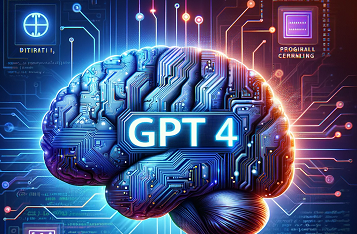Leopold Aschenbrenner, a former researcher at OpenAI, recently published a 165-page essay offering his insights into the future of artificial intelligence (AI). Aschenbrenner’s treatise has garnered attention due to its comprehensive analysis of AI development trends, security implications, and societal impact. Despite his controversial departure from OpenAI, Aschenbrenner’s essay provides valuable perspectives on the evolving landscape of AI technology.
In his essay, Aschenbrenner explores the rapid progress observed in AI research and development. He points to significant advancements in AI models, highlighting the transition from basic systems like GPT-2 to more sophisticated iterations such as GPT-4. Aschenbrenner predicts that this trend of exponential growth in computational power and algorithmic efficiency will continue, potentially culminating in the emergence of artificial general intelligence (AGI) by 2027. This projection underscores the transformative potential of AI and the profound implications it may have for various industries and sectors.
One of the key themes in Aschenbrenner’s essay is the economic and security ramifications of AI advancement. He emphasizes the massive investments being made in AI infrastructure, including data centers, GPUs, and power generation facilities. As AI becomes increasingly integrated into critical systems and processes, the need for robust security measures becomes paramount. Aschenbrenner warns of the potential risks associated with AI misuse and exploitation, particularly by state actors like the Chinese government. He calls for greater vigilance and international cooperation to address these security challenges effectively.
Moreover, Aschenbrenner’s discusses the technical and ethical dilemmas posed by AI development. He introduces the concept of the “superalignment” problem, referring to the challenge of ensuring that AI systems remain aligned with human values and interests. As AI systems become more autonomous and intelligent, the risk of unintended consequences or harmful outcomes escalates. Aschenbrenner advocates for proactive measures to address these ethical concerns and mitigate the potential risks associated with AI deployment.
In terms of societal impact, Aschenbrenner predicts that AI will usher in a new era of transformation across various domains. He foresees AI revolutionizing industries such as healthcare, finance, transportation, and manufacturing, leading to increased efficiency and productivity. However, he also acknowledges the potential for AI to exacerbate existing inequalities and disrupt labor markets, raising questions about the ethical and equitable deployment of AI technologies. Aschenbrenner calls for greater attention to these social implications and urges policymakers to adopt inclusive and responsible AI policies.
Furthermore, Aschenbrenner highlights the geopolitical dynamics surrounding AI development. He predicts intensifying competition between nations, particularly with regard to AI capabilities and strategic interests. As AI becomes a key driver of economic and military power, countries are likely to invest heavily in AI research and development, leading to potential arms races and security tensions. Aschenbrenner emphasizes the importance of international cooperation and coordination to address these geopolitical challenges and promote global stability.
In conclusion, Aschenbrenner’s essay offers a comprehensive overview of the opportunities and challenges associated with AI advancement. While his predictions may be subject to debate and uncertainty, his insights provide valuable insights into the future trajectory of AI technology. As AI continues to evolve and reshape the world around us, it is essential to consider the ethical, societal, and security implications of these developments. By engaging in thoughtful discourse and collaborative efforts, we can harness the potential of AI for the benefit of humanity while mitigating its risks and challenges.
If you like the article please follow om THE UBJ.
